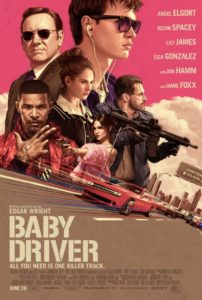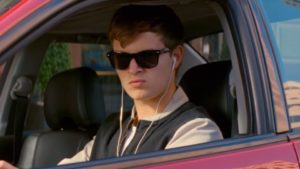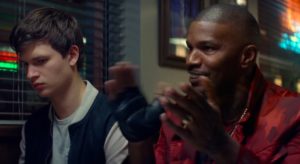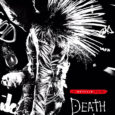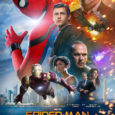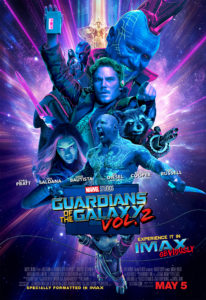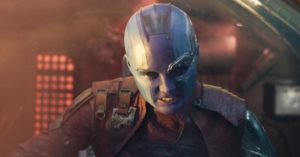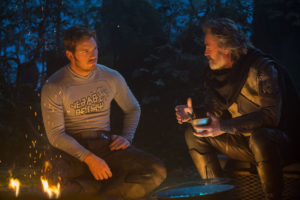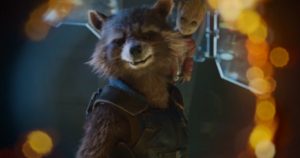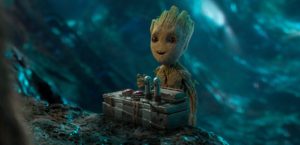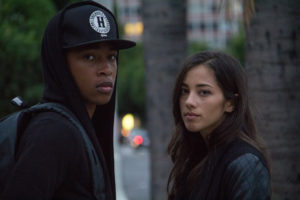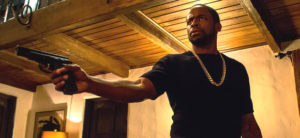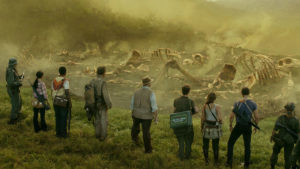Each January, I make a list of the movies that I want to see that coming year. It’s usually filled with big-budget, over-blown action flicks, because that’s what I like. This year, I had to revise my list a couple of times because I overlooked a few items that should appeal to me. One of those revisions included Baby Driver. At first glance, I wasn’t too sure about the Edgar Wright penned and directed flick but I decided to give it a shot. I’m glad I did.
Ansel Elgort is Baby, the film’s protagonist. A perfectly apropos nickname given his youthful looks, but “Baby” is all audiences know the character by throughout most of the movie. Nicknames are also a recurring trend in the movie, in which a team of thieves are gathered by the mysterious Doc (Kevin Spacey) to pull off complex heists. Think the Avengers, but they steal stuff and don’t have super powers.
The plot of the movie is thin by most standards; Baby is in for “one last job” before leaving his life of crime behind him. Naturally, the plan goes off the rails and all hell breaks loose, leaving Baby to adapt if he wants to survive and live his happily ever after.
Edgar Wright is a director who manages to put his own spin on different film genres. He breathed new life into zombie movies with Shaun of the Dead and made a legitimately fun comic book flick with Scott Pilgrim vs the World. It’s easy to expect Wright to deliver a fast-paced yet super fun heist movie, which he manages to do.
Despite the weak plot, the movie is a blast, mostly because of the characters that Wright has created. We have Baby, deep and mysterious and into a wide range of music to which he has an unnatural attachment. The audience is only allowed brief glimpses into his past, but it’s enough to puzzle together why he is the way he is. We’re also given an expository explanation as to his need for music at all times, which is delivered in a delightfully clever way by Mr. Spacey himself.
Then you have Bats, played by Jamie Foxx. “Bats” is short for “Bat-Shit,” indicating how crazy the character is. We’re given nothing about Bats’s past, yet Foxx’s portrayal of the character intimates just how deep his psychoses run. Foxx is great in this role and makes it really easy for audiences to hate him.
Then there’s John Hamm’s Buddy. An enigma for most of the film, it’s hard to gauge which way Buddy goes. He’s a bank robber, sure, but he’s also the only one who’s ever shown Baby any respect. Hamm imbues Buddy with a dead-eyed stare and cool charisma that makes him look like he was ripped right out of a Tarantino film, which makes him a perfect fit for the world of Baby Driver.
With how much we give credit to Edgar Wright for his direction and the actors for their delivery, we also need to recognize the editors, Jonathan Amos and Paul Machliss. I’m sure much of the film kept with Wright’s vision, but Amos and Machliss cut it so that it gels perfectly. A lot of the fun of the movie is within the action sequences, where the gunshots and sound effects sync up with the film’s soundtrack. It’s subtle at first; you almost don’t realize it’s happening but when you do, it adds depth to the scenes.
Speaking of the music, I can’t ignore the soundtrack as it’s an important element of the film. The song selections work brilliantly with the on-screen actions. Similar to the way Guardians of the Galaxy Vol. 2 handled its own musical numbers, Baby Drivers takes innocuous song choices and pairs them with intense, frenetic action. A tire-screeching police chase set to “Bellbottoms” by The Jon Spencer Blues Explosion? It works. An explosive gun fight in a dirty warehouse with Button Down Brass’s “Tequila” as the back drop? Flawless. (The soundtrack also features Ducky from NCIS and I never thought I’d type that sentence but here I am.)
There’s more to Baby Driver than just cool characters and an OK plot; it’s a movie that delivers an experience. From the very start, and I mean at the start of the vanity logos, the film includes a low level hum, just like the one Baby hears from his tinnitus. It accompanies almost all of the moments that aren’t occupied by music or explosions and is persistent throughout, making the audience feel just like Baby does. Sometimes it’s noticeable, sometimes it isn’t. Either way, we get a better idea of how Baby hears his world.
Baby Driver isn’t perfect, though. Baby’s world is turned around when he meets a pretty, perky waitress named Debora (Lily James). Debora’s goal is to cut and run out of town, a goal that Baby doesn’t realize he has until he meets her. James is lovely in the role but her part just runs flat. We get some back story into her character but it’s nothing of any significance. She has a whirlwind romance with Baby but she doesn’t actually change him in any way. We’ve already seen that he has a conscience despite what he does for a living; all Debora does is make him want to run away from the life he built in Atlanta.
It’s a weird dynamic, in a way, considering the relationship Wright shows us between Baby and his foster father, Joe (CJ Jones). Joe is deaf and uses a wheelchair, casting Baby in the caregiver role. Their relationship is so natural and authentic that I would find Joe a more believable reason for Baby to escape the world that he’s entrenched in. I guess you just can’t beat a pretty girl when it comes to movie tropes.
Leaving aside the stale plotline and few shallow characters, Baby Driver is a remarkable film. It’s a fun, upbeat romp in a summer overloaded with drab, ennui-filled popcorn flicks.
Grade: A-
Back in 2014, the world was shocked to find itself entertained by a hard sci-fi comic book movie with a main cast that featured a talking raccoon and a giant tree. Three years later, audiences eagerly anticipated the sequel to that film and here we are, talking about Guardians of the Galaxy Vol. 2. But does the second film live up to the expectations set by the first?
Guardians Vol. 2 opens on the team, composed of Star-Lord (Chris Pratt), Gamora (Zoe Saldana), Drax (Dave Bautista), Rocket (voiced by Bradley Cooper) and Groot (voiced by Vin Diesel), facing off against a pink, undulating, multi-tentacled creature at the behest of a race of beings called the Sovereign. It’s a fun scene that helps set the tone of the film and reminds audiences that they’re in for a good time.
The casting of Guardians of the Galaxy Vol. 2 is definitely one of the films’ strong points. In addition to our core line-up, we are introduced to a few new characters. The first is Ego, played masterfully by Kurt Russell. We learn that Ego is Star-Lord’s father (not a spoiler) and wants to reconnect with his son (possibly a spoiler, if you couldn’t have deduced that yourself). Russell has such a great on-screen presence that he’s a joy to watch as Ego. He exudes charm in such a way that you believe him to be Star-Lord’s father; there’s no denying these two are cut from the same cloth.
The idea of “Family” is a main theme in this movie. They touched on this a bit at the end of the first film, where the cast begin to see themselves as a makeshift family. This time, with Star-Lord meeting his father, they elevate the theme. But we also see it with Gamora and Nebula (played by Karen Gillan), a pair of sisters who were always at each others’ throats. In Vol. 2, they spend more time together and begin to understand each other better. Also, Baby Groot exemplifies the theme of “Family.” Literally a toddler, Groot has an attachment to each of the Guardians, and in turn they treat him as if they were his adoptive parent. It’s very sweet in the way it’s handled.
We also meet Mantis, Ego’s handmaiden. As a full-fledged Guardian in the Dan Abnett/Andy Lanning comic book series, it’s no surprise to learn that Mantis would eventually join the team. Played by Pom Klementieff, Mantis was fun to watch on screen. Her ability to feel the emotions of other by touching them made for a few humorous moments, and though she served a purpose to the plot, I feel like her character was introduced to provide little more than that. That said, I’m happy to see her as part of the team and look forward to seeing more of her.
One character I didn’t quite get was Sylvester Stallone’s Stakar Ogord. Introduced early in the film, Ogord was used as a foil to Yondu (Michael Rooker), and shame him for his past transgressions. Ogord doesn’t make another appearance until the very end, at which point he’s given his very own post-credits scene that points to the character doing something more meaningful. Which makes sense considering they cast goddamn Sylvester Stallone in the role. Whatever it is that writer/director James Gunn has planned for him, I can’t even fathom. To me, his inclusion in the film felt shoehorned and overblown and I could have done without it.
With the exception of Star-Lord, who learns about his heritage, we don’t get a lot of development in the main cast. Some of their backstories are expanded on but it mostly feels like a retread of what we already learned about them in the first film. Instead, the secondary cast gets to step into the spotlight, as Gunn dives into the histories of both Nebula and Yondu. We get a peek into why Nebula resents Gamora so much. Concerning Yondu, we get to delve into his relationship with Star-Lord, which was touched upon a little in the first movie but Gunn really goes in depth here. It makes for a touching story but if you spend enough time thinking about it, it becomes downright unsettling
Guardians of the Galaxy Vol. 2 is dripping with sentimentality. Mostly it’s handled well; it doesn’t get overly dramatic, like Rocket’s reaction to Groot’s “death” at the end of the first film. However, given the emotions that are boiling over, Star-Lord reconciling with his father, Star-Lord’s confrontation with Gamora about their unspoken thing, and even Drax and his reminiscing about his wife and daughter, we see how despite all of their flaws, the Guardians remain human (a term used loosely given that 80% of them are aliens).
The first Guardians was impressively funny, probably the most humor-filled film in the Marvel Cinematic Universe. Rightfully, Vol. 2 manages to keep that vibe going, and they even upped the humor quotient this go around. I’m not trying to say they squeezed more jokes into the script, which, to be fair, they seem to have done. The tone of the humor was intensified, almost to the point of being cartoonish. A scene in which Yondu, Kraglin (played by the director’s brother, Sean Gunn), and Rocket make a jump to hyperspace really displays the ways James Gunn was willing to push the envelope. It works within the confines of this film, one which is willing to play around with the laws of physics, but it just seemed over the top and unnecessary. I think we’re willing to give Gunn the leeway to do things like this because his track record is relatively clean, but I hope he doesn’t press his luck too much.
One of the ways Gunn improved in the sequel is in the pacing. The first Guardians needed to build its world so some of the scenes felt longer than they should have, mostly because of the wordy exposition used to get the point across. Vol. 2, however, has pretty much established its rules, so the only wordiness is to expand character arcs. There were still quite a few wordy monologues but at least they didn’t feel as expository.
In regards to the composition of Vol. 2, Gunn uses the same formula as he did in the first one, which is the only main downside. We open with a scene from the past, cut to quirky musical intro credits, move into character intros, exposition, exposition, dramatic turn, final battle. There’s nothing wrong with working from the formula (that is, after all, how it became a “formula”), and at least Gunn manages to make this film feel different from its predecessor. If this becomes the norm, however, it could really bring down the series.
As part of the most offbeat series in the Marvel Cinematic Universe, Guardians of the Galaxy Vol. 2 could have gone in a number of directions but I’m pleased with where James Gunn chose to take it. Humanizing the cast was a great way to keep audiences connected with the characters. It was also great to see a few of the more underutilized characters from the first film get the chance to shine (while Baby Groot is the clear fan-favorite, Drax had a few pretty amazing moments). All in all, Guardians of the Galaxy Vol. 2 never lost sight of what everyone loved about its predecessor. While not perfect, it’s a fun movie that helps to elevate Marvel’s record in regard to sequels. I’m ready for the third one.
Grade: A-
Sleight is one of those movies that almost flew completely under my radar. Despite premiering at Sundance in 2016, I hadn’t heard of it until a tweet showed up in my Twitter timeline. I forget its contents now but the retweeter, Dulé Hill of Psych fame, was promoting the film. Which makes sense considering he’s one of its stars. As a fan of Hill, my interest was piqued.
The movie focuses on Bo, relative newcomer Jacob Latimore, a brilliant kid with a penchant for science. He was forced to drop out of school after his mother died to take care of his younger sister, Tina (Storm Reid). During the day, Bo works as a street magician, performing simple card tricks and levitating items for tourists in the busy parts of LA. But at night he hustles drugs for a local kingpin, Angelo (Hill).
For the most part, his life is going well. His bills are paid, his sister is doing well in school. He even meets a girl, Holly (Seychelle Gabriel). But when Angelo asks him for a “favor,” his golden life starts to tarnish, and he sees that the man he’s working for is not the friend he thought he once was.
Directed and co-written by J.D. Dillard, Sleight really delves into the character of Bo, working hard to make sure the audience really understands what he’s going through. Unfortunately, it does this to the detriment of the rest of the cast. We get a small look into Holly’s home life, with lines that quickly explain away why she’s not as happy as she should be. Antagonist Angelo is a trope-fueled gangster; we never learn why he’s as sadistic as he is, but it turns out it’s never important to the plot. All that matters is that he put Bo in a certain position and all we are supposed to care about is how he’s going to get out of it.
Sleight does do something very right, and that’s the aspect of Bo’s “magic.” We see early on that things may not be what they seem and as the film progresses, our suspicions are confirmed. However, we spend so much time wondering just what is happening that by the time everything comes to a head, the finale seems anti-climactic. Everything that the movie worked up to, the final confrontation that I was looking forward to, was over in five minutes, leaving me with a “that’s it?’ feeling.
The film’s marketing is my biggest gripe with Sleight. The movie billed itself as a super hero film (it was referred to as “Chronicle meets Iron Man”) but it never actually feels that way. Sure, it contains a few elements of super heroism, like the source of Bo’s mysterious “powers.” But at its core it’s a character study. It’s a tale of revenge and redemption. We see a smart kid like Bo get stuck in a harrowing situation due to factors outside of his control, forcing him to do something stupid to try and pull himself out, only to get mired deeper into it. Yes, Bo can do some amazing things but that doesn’t make him a super hero and billing him as such denigrates the achievements of his character.
All that aside, Sleight is a beautifully directed film. Dillard uses natural light as often as possible, probably as a way to keep the production budget down but he does so in a way that makes the film more interesting to watch. Even his framing of characters in certain scenes added life to otherwise static moments; talking heads aren’t very interesting but if they’re shot from the right angle, we can be enraptured.
The acting in Sleight deserves a nod as well. Latimore was perfect in the role of Bo, coming off as cocky in his magic scenes but then awkward and unsure when he’s with Angelo or Holly. Seychelle Gabriel was also a joy to watch; Holly’s backstory didn’t lend much depth to the character but Gabriel manages to keep her interesting, mostly through Holly’s rapport with Bo. It’s a shame Holly was only used as a crutch for Bo. I would have liked to have dived deeper into her character.
Dulé Hill was one of the oddest characters to see in this film. As an actor who generally only plays nice guys, like Gus in the aforementioned Psych, seeing him as the tough-as-nails, sadistic drug czar was certainly a change of pace. At times, it even seemed awkward to hear him drop F-bombs and get physical with other characters. Unfortunately, Hill’s portrayal of Angelo felt a little stilted, like he was trying to make the character his own instead of drawing upon inspiration from other badass drug dealers in early cinema. Which is fine, but when every other aspect of the character is derivative of a hundred other films out there, it doesn’t jibe too well. That said, Hill did well with what he was given.
I’m happy that I saw Sleight early in its release and I do give it credit for what it was trying to do. However, having one interesting character in a cast of overused clichés doesn’t make for a very compelling film. Pair that with marketing that doesn’t wholly apply and you have a recipe for a movie that is bound to disappoint some people. Despite all of that, the character of Bo make it an interesting film, one that I would recommend if you have some free time.
Grade: B-
If a tree falls in a forest, and a mythological gigantic ape picks it up to use it as a weapon, does it make a sound? Yes, that sound is me in the theater audibly uttering “wow” through a giddy smile. This is the true test Kong: Skull Island has to pass or fail. Could it not only entertain but “wow” audiences with its spectacle? Fortunately, it unquestionably amazes with its stunningly-crafted CG and scale, but it’s at the expense of smooth dialogue and strong characters.
In the latest Kong retelling, the story is as thin as you’d expect, since the emphasis is on the origins of these monsters. As the Vietnam war comes to an end, a group of determined scientists implores the government to send a military escort with them to an undiscovered island. Along the way, said scientists hire a tracker (Tom Hiddleston). Separately, a photographer tags along (Brie Larson). The plot broken down in a sentence is essentially “some dummies go to Kong’s island to study things.” I’m never a fan of being reductive, but a film isn’t supposed to make it so easy to do. Regardless, I suppose that’s not why we eagerly watch these types of popcorn blockbusters.
Commendably, Warner Bros. Pictures employs one of the strongest ensemble casts you’ll see in a movie all year. Hiddleston, recent Oscar winner Larson, Samuel L. Jackson, John Goodman, John C. Reilly, Toby Kebbell, Shea Whigham, Thomas Mann, and Jing Tian star, to name a few. The film also features a Straight Outta Compton reunion with cast members Jason Mitchell (Easy E) and Corey Hawkins (Dr. Dre). The casting aspect alone held so much promise on paper, but this potential felt largely squandered.
Sam Jackson and John C. Reilly are clearly taking liberties and enjoying it in their respective roles, but everyone else is strikingly forgettable. There’s attempted interplay between a couple of the marines that ultimately falls flat. Heavy-hitting actors Hiddleston and Larson are simply present to be a conduit of plot details for us, the audience. Most of what they do while on camera is react with the best surprised expression they can muster. Sure, the two have distinct occupations but it’s merely an excuse to carry them into this dangerous adventure. Not to mention, Hiddleston’s James Conrad did very little tracking at all. As far as definitive personality traits, I didn’t notice any from Hiddleston, Larson, or the many other expendable individuals.
As I touched on, Reilly and Jackson are a blast to watch as they chew up their scenery. Whether improvised or purposefully written, the jokes never seem to land pre-Reilly. Like he does in his prior comedic work, he has a natural delivery and general presence that inspires laughter. Jackson as Colonel Packard recited some insane lines in the vein of a cheesy ’90s action villain with such hilarious conviction. The duo was nothing short of a joy to see perform.
We have to praise the real star of the show: Kong. Everything about him in Skull Island exceeded my expectations. If your primary complaint of 2014’s Godzilla was “where’d that enlarged lizard thing go?,” prepare to be satisfied. Kong appears in the first 3 minutes, and they don’t hold back as a means to build tension (which I personally appreciated in the latest Godzilla effort). At times, he’s spotted merely walking around the island, and every frame he occupies feels majestic. Terry Notary put forth a tremendous motion-capture effort that added a surprising amount of nuanced personality to the familiar beast. More than that, Kong is written with a layer of ingenuity. In his several oversized-creature battles, he uses his surroundings and tools he might spot at random to their full potential to aid him in bringing down his enemies. Kong himself should satisfy the majority of moviegoers.
Another facet I appreciated from the picture was director Jordan Vogt-Roberts‘ work behind the camera. There are plenty of carefully constructed frames with a remarkable colorful concoctions. After the movie rushes past certain crudely-written scenes with one-dimensional supporting characters, Vogt-Roberts squeezes in intricately vibrant set pieces. Whether it’s a fast-paced action sequence involving an abundance of fire or Kong purely looking at a sunrise, he shows off his knack for capturing the beautiful production design in a visually-palpable way. Unfortunately, he’s not given many opportunities to display these skills on more than a couple occasions.
I may have levied quite a few criticisms against this flick. Nevertheless, a visit to the theater to see Kong: Skull Island on the silver screen is a good investment. If you expected occasional astounding visuals and fantastic monster fights, then Skull Island will distribute that in spades. Anticipating tangible character development and dialogue that doesn’t make you cringe is simply too much to ask. While we always prefer a satisfying mixture of both, Kong is still an enjoyable (literal) giant blockbuster. Also, don’t forget to remain seated for a post-credits tease. You’ll start to see how the larger Warner Bros. MonsterVerse starts to connect, and it’s very exciting.
Grade: C


